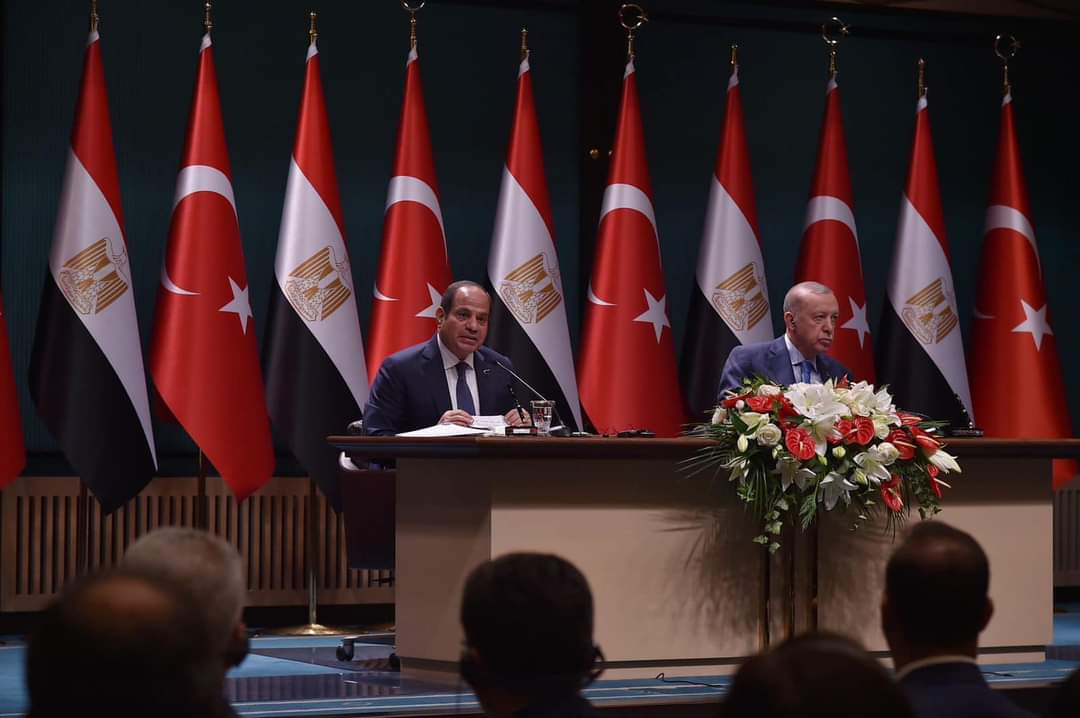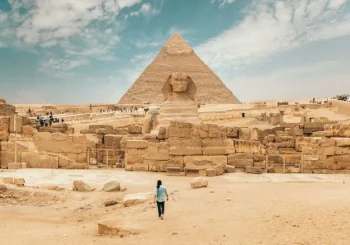In a landmark visit on Wednesday, 4 September, Egyptian President Abdel-Fattah Al-Sisi arrived in Ankara, marking his first visit to Turkey since assuming office in 2014.
As part of the historic tripthe historic trip, both the Turkish President Recep Tayyip Erdogan and Egyptian President Al-Sisi signed a Joint Declaration following the first meeting of the High-Level Strategic Cooperation Council between Turkey and Egypt.
The joint declaration emphasizes the commitment of both countries to elevate their bilateral relations to a strategic level, guided by principles of mutual respect and cooperation. The document highlights the importance of fostering peace, prosperity, and stability in the region, as well as promoting economic cooperation to benefit both nations.
Among the key areas of collaboration outlined are renewable energy, infrastructure, and climate change, with both countries expressing a shared commitment to addressing global challenges.
Economic Collaboration
The declaration signals both countries’ ambition to boost trade relations, with a shared goal to increase their trade volume to USD 15 billion. Additionally, the agreement stresses the importance of improving the investment climate for Turkish and Egyptian businesses and facilitating joint projects, particularly in micro-enterprises and entrepreneurship.
Both leaders reiterated and expressed their determination to promote joint economic projects to enhance integration between the two countries.
Regional Cooperation
Al-Sisi and Erdogan also addressed several pressing regional challenges during their meetings, affirming their commitment to cooperate on international efforts to tackle humanitarian crises.
The leaders condemned Israeli actions in Gaza and the West Bank, calling for an immediate ceasefire and urging international support for the Palestinian National Authority. They reiterated their support for the Palestinian people’s right to establish an independent state based on the 1967 borders, with East Jerusalem as its capital.
On the Syrian conflict, both presidents underscored their shared vision for a lasting solution in line with United Nations Security Council Resolution 2254. The leaders also reaffirmed their commitment to combat terrorism and support humanitarian relief efforts for the Syrian people.
The joint declaration also addressed the ongoing conflict in Sudan, with both countries expressing concern over the humanitarian consequences. They called for collective diplomatic efforts to resolve the crisis peacefully and confirmed their shared determination to work towards stability in the Horn of Africa.
Strengthening Diplomatic Ties
In addition to economic and regional cooperation, the joint declaration emphasizes the importance of diplomatic dialogue and collaboration in consular, military, and security matters. Both nations also committed to working closely within international organizations such as the United Nations, the Organization of Islamic Cooperation (OIC), and the League of Arab States.
The declaration recognizes the importance of cultural and historical ties, agreeing to enhance cooperation in tourism, education, and youth engagement. Bilateral collaboration in combating disinformation and promoting media and communication exchanges was also underscored.
At a press conference, President Al-Sisi expressed optimism about the outcomes of this historic meeting, noting that the signed agreements and memoranda will help “establish a new institutional framework for cooperation” between Egypt and Turkey. President Erdogan echoed these sentiments, emphasizing the strategic importance of their collaboration for regional stability and economic growth.
This visit marks a turning point in Egypt-Turkey relations, signaling a new era of cooperation between the two regional powers. It also marks the first visit by an Egyptian president to Turkey in 12 years and follows Erdogan’s February visit to Cairo, underscoring the efforts to restore ties.
During their meetings, both leaders committed to further strengthening ties and continuing their strategic dialogue.







Comments (0)